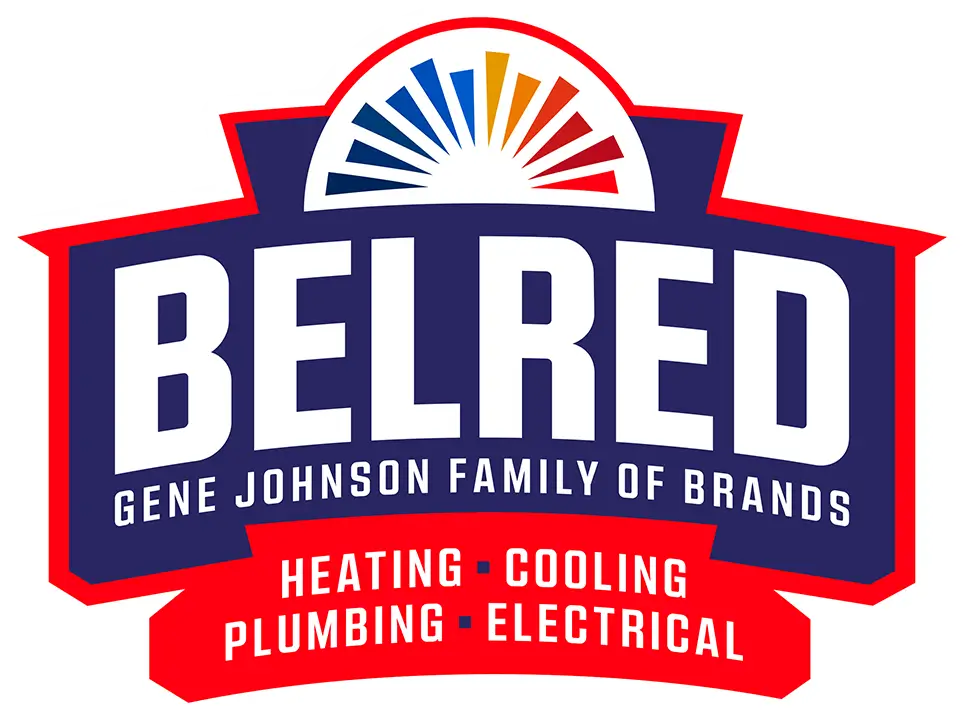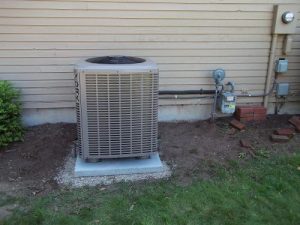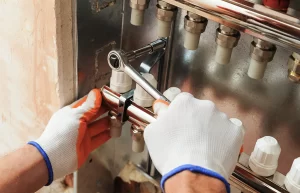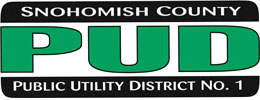Can’t get in the spirit of the holidays without a warm and toasty ambiance? Is a frozen heat pump getting in the way of your peace?
Your air conditioning system may have altered temperatures during the summer months without a hitch. However, your heating system may be unable to perform properly when weather conditions cause excessive ice buildup.
If an HVAC system isn’t working properly, external factors may compromise internal components.
While that’s common throughout the year, heat pumps freeze due to excess moisture, cold air, and compromised refrigerant levels. A service call to a reliable HVAC professional may help you prep for the incoming winter months.
Call BelRed now for pre-winter maintenance, AC repairs, and tune-ups in Washington.
Here are other troubleshooting tips to help break the ice this winter.
Is It Normal if My Heat Pump Freezes?
A frozen heat pump is typical but must be dealt with quickly. Ice can spread and contaminate the rest of the HVAC system, hindering some components and throwing others into overdrive.
There are plenty of possibilities involving your heat pump and ice. Whether your heat pump is heavily or lightly covered in ice, your winter may go from cold days to intolerable nights.
Subzero temperatures may develop ice in the shape of a sharp object, piercing through refrigerant lines and inflicting abrasions on coils. However, your unit’s coils may also be completely covered by a thin layer of ice, dampening the entire heat pump system.
While a heat pump freezing is “normal,” it may snowball into worse problems before you know it. A poorly maintained HVAC system is more susceptible than others during blistering winters, and it can only get worse from here.
Frozen heat pumps can cause permanent damage faster than that ice melts. When you notice any symptoms of a frozen heat pump, reach out to an HVAC technician immediately.
Signs of a Frozen Heat Pump
You might waste time looking for an open window somewhere, blaming the indoor draft on the outside air. You should inspect your air conditioning system’s outdoor unit for any frost and other unusual activities.
Signs you should look out for include but are not limited to the following:
- The outdoor unit is visibly frozen. (Dripping icicles, frosted edges, snow blanket, etc.)
- The indoor unit (air vents, handlers) produces stale air.
- Banging, clanging, bubbling, buzzing, and hissing noises are coming from either unit.
- The indoor unit is leaking.
- Defrost cycle is ineffective.
Don’t worry about some ice buildup. Your HVAC system can prevent some problems from worsening or occurring at all.
Heat pumps typically come with internal safety measures to course-correct and melt the ice. Air conditioners deploy heating mode that includes automatic functions, protecting external and internal mechanisms.
A newer model may have a more effective defrosting cycle. Older models may have mechanical timers linked to a defrost thermostat, instigating a defrost cycle. Still, too much ice can overcome poorly maintained or older systems.
What happens when Your AC’s Defrost mode is ineffective?
Bad defrost relay may stem from excess moisture due to condensation or refrigerant that’s saturating the entire coil. Bad defrost control or a sticking reversing valve may also prevent that same moisture from evaporating.
If your air conditioning unit succumbs to excess water around interior coils or ice surrounding the outdoor unit, you can forget its defrost cycle from being of any help.
Defrost mode can’t always help and may not address the situation entirely. You can ensure your heat pump works all winter by avoiding some of the most common mistakes.
Why Would My Heat Pump Freeze in the Summer?
Heat pumps freeze when outdoor temperatures are too low, and there’s too much condensation within the outdoor unit. Your heat pump cannot produce proper airflow and may start trapping high-pressure air.
Static pressure and freezing temperatures are volatile, resulting in a frozen heat pump.
Your outdoor coil facilitating refrigerant levels may overheat, crack, and deplete the supply. If your heat pump effectively fights off snow, an outdoor coil overheating and overcompensating may result in a refrigerant leak.
While refrigerant leaks are one of the most common reasons, there are a few others.
Common Causes of Frozen Heat Pumps
Freezing can stem from high-pressure refrigerant leaks or when air builds within the air conditioning unit. Poor airflow may prevent the outdoor evaporator from discharging excess moisture or pressure, trapping condensation, and lower temperatures.
They are enough to suffocate the outdoor fan and render the defrost cycle powerless against internal and foreign threats. If the defrost cycle cannot produce enough heat to melt the ice, it won’t be long until refrigerant creeps into motors, coils, and filters.
Frozen Evaporator Coil
A frozen heat pump happens when critical components freeze. The most susceptible to freezing is the evaporator coil. While ice may quickly melt, frozen refrigerant won’t go away as fast.
Heat isn’t always enough to get refrigerant off coils. Leaks are the most dangerous possibility behind low refrigerant levels. If your heat pump freezes during summer, there is no snow to blame, and a refrigerant leak may be the only possibility.
You can count on a frozen coil somewhere if there’s a refrigerant leak.
Frozen Condenser Coil
There are two critical coils in your HVAC unit: one indoors and another in your outdoor unit.
The condenser coil transmits refrigerant toward the evaporator coil to alleviate ambient heat indoors. When there’s a refrigerant leak, it typically envelopes both coils.
When an HVAC tech inspects your unit and reports low refrigerant levels, they may attribute it to a leak and remedy any effects on the coil. However, your condenser coil may freeze due to the external temperature. If the temperature registers indoors, it may also affect your indoor coil.
Subzero Temperatures and Condensation
Freezing temperatures and moisture will immediately turn into frosting. A bad motor fan may not generate enough waste heat to fight off the frost. Frozen motors can’t transmit enough power to fans and coils to keep the heat pump going, and your heat pump will succumb to freezing.
Motors only power some of the valves, with some deriving power from the electrical current in coils.
However, a frozen coil or bad fan motor will hinder any electrical distribution. A sticking reversing valve will impact refrigerant flow, causing internal freezing.
You can still remedy a frosted outdoor unit, but you can’t exactly run a garden hose through interior components. It’s best to contact an HVAC professional for these issues.
Get to Know Your HVAC System
You can call an HVAC specialist for any concerns, but it may help move things along when they know what they are remedying. Dealing with a frozen heat pump will differ depending on the type you have.
Some heat pumps require some digging, while others have more accessible components. What do you have at home?
Heat Pumps
Here are some of the most common heat pumps across America.
Air-to-Air Heat Pump
An A-T-A heat pump modifies indoor temperatures by deriving outdoor ambient heat particles. The heat pump is the most common air conditioning installation.
It may come with one outdoor unit and one or two indoor handlers. It directly alters ambient temperatures and only typically requires common HVAC equipment to maintain or repair.
Heat Pump Water Heater
A heat pump water heater derives heat from surrounding moisture. The heat pump transfers heat particles into a cylinder containing a medium, commonly another liquid.
The medium heats water outside the cylinder for either direct or indirect distribution. A water heater directly distributes usable water from outlets such as sinks and showers.
Indirect distribution heats water and distributes them into floorboards for ambient heating. An HVAC professional may need a different set of tools and use other techniques to handle their maintenance and repairs.
Geothermal Heat Pump
A geothermal heat pump is the most sustainable and environmentally friendly heating system. It derives heat from ground moisture or body of water during the summer and uses it for heat distribution during winter.
You can also use a geothermal heat pump for cooling mode during summer. The heat pump will store all heat particles indoors and outdoors instead of directly dispelling them outdoors.
They are sophisticated mechanisms that require special expertise. Without proper maintenance and routine upkeep, they may still succumb to exposure.
Routine Maintenance & Upkeep of Air Conditioning Systems
All appliances require yearly cleaning and tune-ups. Surrounding elements may negatively impact its mechanisms. If you want reliable and quality conditioning all year, handle your heat pump with the utmost care.
You don’t have to do it alone. You might do more damage than good by cutting back on these expenses. It would help if you considered this an investment or necessary fee rather than a luxury or an added cost.
If you need AC maintenance in Washington, don’t hesitate to call the pros!
Need a Reliable HVAC Technician in Washington?
The chances of a frozen heat pump nearly double as soon as the first snowflakes hit the ground. If you need heater or furnace services, it will help if you schedule them before the heating season.
Remember, not all heat pumps are made equal, and not all HVAC professionals are reliable. You can trust only one solution for all your heating and cooling needs.
BelRed
If you have problems, we have solutions. For efficient and lasting heat pump repair, you need BelRed.
You don’t have to break the bank for reliable heating this winter. Our team of HVAC specialists ensue effective repairs at the most affordable costs.
Residents from Mukilteo, WA, can book BelRed Heating | Cooling | Electrical | Plumbing services online.







